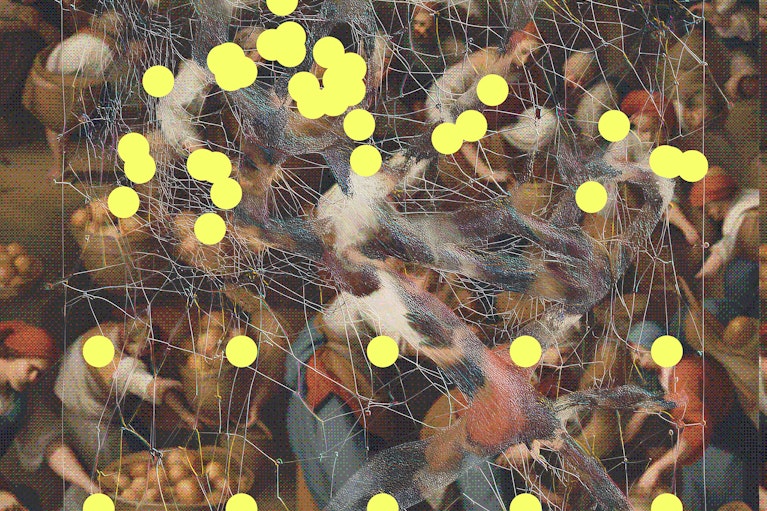Fernando Henrique Cardoso was the president of Brazil from 1995 to 2002. He is a member of the Berggruen Institute’s 21st Century Council.
SÃO PAULO — The final outcome of Brazil’s presidential election on Sunday confirmed a trend delineated in the first round: a significant victory for Jair Bolsonaro, a retired Army captain who for decades was a back-bench congressman without any significant legislative record. He continually voted in favor of corporate interests and against a liberal economic agenda. He is also a relentless advocate of gun ownership and an ultra-conservative on moral and cultural issues like abortion and gay rights. Tellingly, his favorite motto is, “A good criminal is a dead criminal.”
How did the unthinkable happen? Bolsonaro surfed a tsunami of popular anger and despair that swept away the entire Brazilian political system, along with the old party leaders. He was able to do so because of the people’s growing suspicion that representative democracy is incapable of delivering what they need. This disaffection was compounded by a brutal economic recession in Brazil, the longest in our history. Unemployment soared, urban violence reached staggering heights — nearly 64,000 homicides in 2017 or 175 deaths per day. Organized crime spiraled out of control. Political parties, especially the left-wing Workers’ Party (PT), floundered in corruption.
It was no wonder that the political system collapsed. Of the four presidents elected after the 1988 Constitution took effect, two were impeached, one is in jail for corruption and the other is me. So far, the sweeping anti-corruption investigation, known as Operation Car Wash, has resulted in the indictments of a former PT treasurer, a former presidential chief of staff, the president of the lower house of congress, a government minister and several state governors. They have been charged with corruption or bribery or both, with several sentenced to years in jail.
Beyond this long list of wrongdoings lies profound structural faults. The fourth industrial revolution modified the forms of production and the way people relate to each other. Today, people are connected not just by their political organizations. The Internet enhances connectivity and amplifies voices, subjecting voters to waves of opinion often driven by resentment and fear and sometimes hate.
Meanwhile, mainstream media is losing its influence. Society has lost its former cohesion. Political parties and trade unions, which once gave meaning to political projects and ideologies, no longer draw support and solidarity. As a result, people’s political choices are often guided by messages generated by their social networks. And when the corruption of political parties, statesmen and leaders is exposed, anger against politicians overshadows all other concerns. That is exactly what happened here in Brazil.
It is imperative to reweave the threads that link political institutions with the dynamics of the economy and society. This will not happen by adhering to the regressive wave that divides society into enemy camps, but rather by exposing its inconsistencies with the national interest.
In contemporary, networked societies, people are no longer an amalgam of individuals compacted into “masses.” They seek information to make individual choices. The common ground has not withered away, but it needs to be reframed, so that is felt as something good for all people. Whenever there is an epochal shift like this, what once was solid seems to vanish into thin air. But it does not disappear. The challenge is to make values and interests coalesce in a contemporary way.
During this electoral campaign, fear, insecurity and the visceral rejection of corruption touched people’s hearts. The crossfire of accusations demoralized traditional parties and candidates. The media did its best to characterize all politicians as birds of a feather. Social issues like the brutal rise in income inequality and unemployment levels, as well as the lack of public investment due to fiscal imbalances, added to a dysfunctional party system, paving the way to our “new” politics. The end result was no less than the emergence of a populist leader with no clear definition of public policies, no real congressional base of support and no long-term political organization.
This political crisis does not end with yesterday’s election. Without rebuilding trust, how can the economy recover, employment rebound and social policies expand? This must be the agenda for the immediate future. Hopefully, the pathways to economic prosperity and social equality will be found. But the elected government does not look promising.
Democracy was the overriding cause for my generation. It is always a work in progress. Today, it may be at risk in Brazil, as it is elsewhere. If human rights and the rule of law are threatened, our obligation will be to stand up and resist.
This was produced by The WorldPost, a partnership of the Berggruen Institute and The Washington Post.





